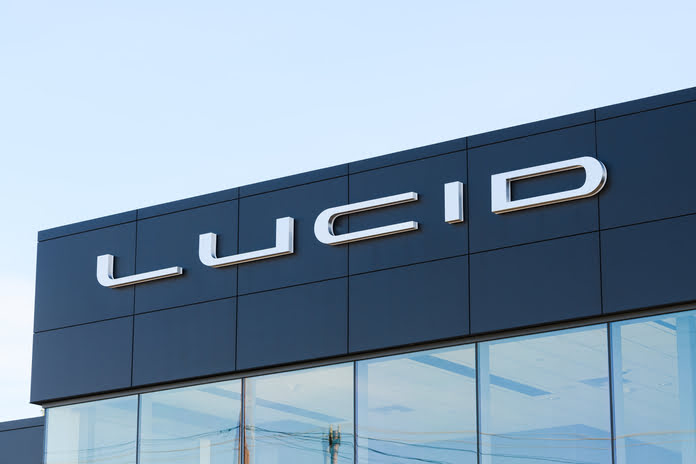The electric vehicle (EV) sector has faced a challenging start in 2024, witnessing a broad sell-off that includes industry leaders like Tesla (NASDAQ:TSLA). Lucid Motors (NASDAQ:LCID) also experienced a dip, reaching an all-time low of $2.54 before a modest rebound. As the EV market grapples with uncertainties, particularly regarding demand and market dynamics, the question arises: Is Lucid Motors a growth stock worth considering after this recent dip?
Factors Contributing to LCID’s Decline
LCID stock has declined by 31% in 2024, echoing a similar trend observed in Rivian (NASDAQ:RIVN), another company that went public in 2021 through an IPO. The EV industry’s slump is attributed to multiple factors, including lingering concerns over EV demand, exacerbated by incidents such as stranded Tesla cars in harsh winter conditions. Additionally, Tesla’s consistent price cuts, especially in China, have raised doubts about the viability of emerging EV players like Lucid and Rivian, grappling with persistent cash burn challenges.
Another contributing factor could be the speculation around the potential return of Donald Trump to the U.S. presidency, as his known skepticism towards electric cars and green energy policies contrasts with the pro-EV stance of the Biden administration.
Current State of EV Stocks
The current downturn in EV stocks starkly contrasts with the euphoria witnessed between 2020 and 2021 when these stocks soared to unprecedented heights. Lucid Motors, which once approached a $100 billion market cap, now sits at $6.2 billion, while Rivian has fallen below $15 billion. Despite their diminished market caps, both companies maintain substantial cash reserves, with Lucid boasting $4.9 billion in cash and short-term investments as of September.
Lucid Motors: A Worthwhile Investment?
Despite facing challenges on both macro and company-specific levels, Lucid Motors may present a compelling opportunity at its current discounted valuations. Here are some reasons supporting this perspective:
Strong Product Proposition: Lucid Motors distinguishes itself with a strong product offering, exemplified by the Lucid Air, which received the Car of the Year 2022 award from MotorTrend. The vehicle also ranks second in energy efficiency among models currently available, according to the U.S. Department of Energy.
Tech-Sharing Partnerships: Lucid has entered tech-sharing partnerships, such as the collaboration with luxury carmaker Aston Martin, underscoring its technological prowess. These partnerships can position Lucid as a key player in reducing R&D costs for automakers.
Saudi Plant and Financial Backing: Lucid’s assembly operations in Saudi Arabia, along with significant financial backing from the oil-rich nation, signal a strategic advantage. The Saudi sovereign wealth fund, Lucid’s largest stockholder, has invested $3 billion, reflecting a commitment to clean energy.
Gravity SUV Launch: The imminent launch of the Gravity SUV later this year adds another dimension to Lucid’s product lineup, potentially boosting deliveries.
Analyst Sentiment and Forecast
While Wall Street analysts currently lean towards a “Hold” rating for LCID, with 10 out of 12 analysts advocating this stance, the mean target price of $5.47 implies a substantial 90.6% premium to the current stock price. This suggests a potential upside, albeit with caution.
Conclusion
Despite previous reservations about Lucid Motors’ valuation during its overhyped merger, the current downturn may present an opportune moment for investors. Lucid’s strong product lineup, tech partnerships, financial backing, and the upcoming SUV launch position it as a contender in the competitive U.S. EV industry. Investors should carefully weigh the risks against the potential rewards, recognizing the fluid nature of the EV market.
Featured Image: Megapixl















